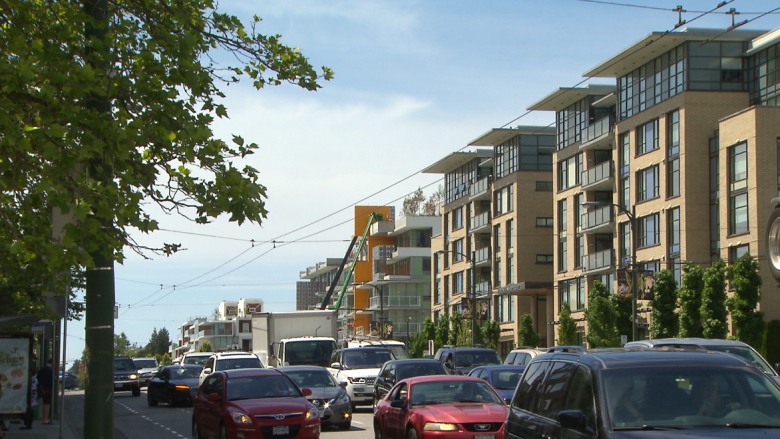It's time to move on from single family homes, says UBC sociologist

A free-standing house with a yard is still seen as the holy grail of real estate for many and one UBC housing expert says clinging to that hope shapes how some Vancouverites view development and densification.
In the newly announced 2018 B.C. budget, the NDP government took aim at housing costs with tax measures and promised to build 114,000 homes over the next decade including social, student and modular housing.
Nathan Lauster, an associate professor of sociology at UBC and author of The Death and Life of the Single Family Home, agrees more housing is the solution to tackling the affordability crisis.
"This was really a pretty broad swipe at actually trying to improve the housing circumstances for a lot of people in B.C.," he told Stephen Quinn, the host of CBC's The Early Edition .
Roughly 80 per cent of of Metro Vancouver is still zoned for single family homes. When it comes to densification, attitudes haven't always caught up with the shifting reality, he said.
"What the density looks like is also still a real sore point," Lauster said. "A lot of people are quite attached to things the way they are and that's understandable."
History of housing
As a sociologist, much of Lauster's research has focused on how cultural attitudes toward housing are evolving.
Options like secondary suits and laneway houses are more easily accepted, but people "still seem to balk at things like townhouses and low-rise apartments."
High-rise apartments, Lauster added, are seen even more so as "the big demon."
Many of the ideas around single-family homes as the ultimate housing goal can be traced back to Vancouver's history of housing and regulation around development, an argument Lauster explores in his research.
"It is something that we need to get beyond, if we want to actually talk about providing greater options for people," he said.
Lauster is giving a talk at the Museum of Vancouver on Thursday, Feb. 22, focusing on the city's history of housing and how Vancouverites are attempting to make themselves at home without the traditional single family detached house.
With files from The Early Edition.

 Yahoo Finance
Yahoo Finance 